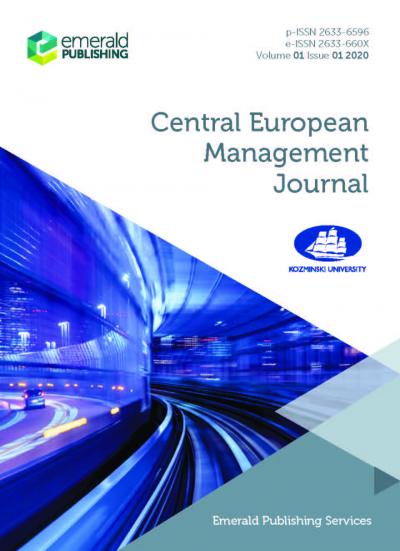Accounting as a Source of Financial Information on Insolvency in Liquidation Proceedings
Kinga Bauer
Cracow University of Economics
Jan Hospodka
University of Economics in Prague
12/2020 28 (4) Central European Management Journal
DOI 10.7206/cemj.2658-0845.32








